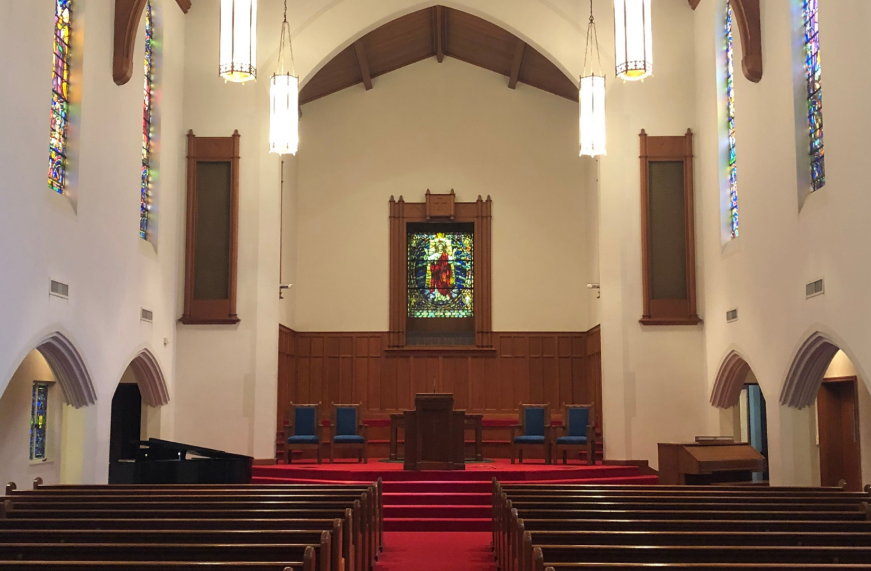Living Within Grace

The acoustics in Watson Chapel at UBC are outstanding. If you have yet to experience the Chapel, I highly encourage you to at least visit it. Much of my own time this year is spent there as it plays host to our Sunday night College Worship. I attribute the wonderful acoustics to the high ceilings, the shape of the room, and the materials the walls are made of. However, I have zero experience with acoustical engineering and architecture, so I could also be totally wrong here. Regardless, you can clap once in that room and the sound builds and builds until the whole space is full of a reverberation you can feel down to your soul.
That’s why there was no mistaking the word that echoed around the walls as our last group of students were leaving late one evening. I will not repeat it here. Suffice it to say it had four letters and would land a toddler in timeout if they repeated it. The student, who was visiting for the first time, said it far louder than I’m sure she intended during a moment of excitement with her friends - who come regularly. There were only five or six of us there, which meant there was nothing to deaden the sound. Like the clap above, the profanity just built in intensity as it climbed the walls. The look on her face was one of sheer embarrassment with a touch of horror. She apologized profusely from across the room as she backed away.
In that moment, I thank God that He gave our group the grace to meet this student not with shame but with the Gospel. She was not ridiculed out of the building. She was embraced. The point was simple and clear: be the person in this room that you are outside of it. Some might say that is backwards; that it should read “be the person outside of this room that you are inside of it.” I am not convinced of that, though.
I understand that the intention is for the church building to be a sacred space. I understand the irreverence of unwholesome talk (Col. 3:8, Eph. 5:4). It is not holy. However, I also understand the damage we do when we show up to God and bring anything less or different than our true selves. God deserves better than falsities.
When Isaiah saw the throne of God in a vision (Isaiah 6) He did not try to convince God or the angels flying around of his own holiness. He did not pretend things were better with him than they really were. Rather, he cried out, “Woe to me! I am ruined, for I am a man of unclean lips and I live among a people of unclean lips, and my eyes have seen the King, the Lord Almighty.” When the unholiness of Isaiah humbly (and fearfully) met the holiness of God, God chose to extend His own holiness to Isaiah. He cleansed Isaiah. He brought a change in Isaiah. He desires to do the same for us.
In Jesus, we are offered an atonement for our sins. This is an everyday reality that we live in. God offers us the freedom to be who we truly are created to be (Ephesians 2:10). Of course there are things we all carry that are less than perfect. We have secret sins, bad habits, overwhelming fears, judgmental and critical attitudes, and yes, even a tendency to curse. The people who were healed by Jesus, though, were not the ones who pretended to be well. He healed the ones who presented their sickness. He discipled the ones who acknowledged His wisdom, not their own. He embraced the ones who reached out to embrace Him.
Church, may we be a people where others can bring their full selves to God because they have seen us do exactly that in our own lives. May we always live within grace for one another and ourselves. May holiness be our goal (1 Thessalonians 4:3), and may our hearts be softened to the process. - Jason Simon, Minister to Students

2 Comments
Wow! Thank you!
Thank you, Ms. Jane